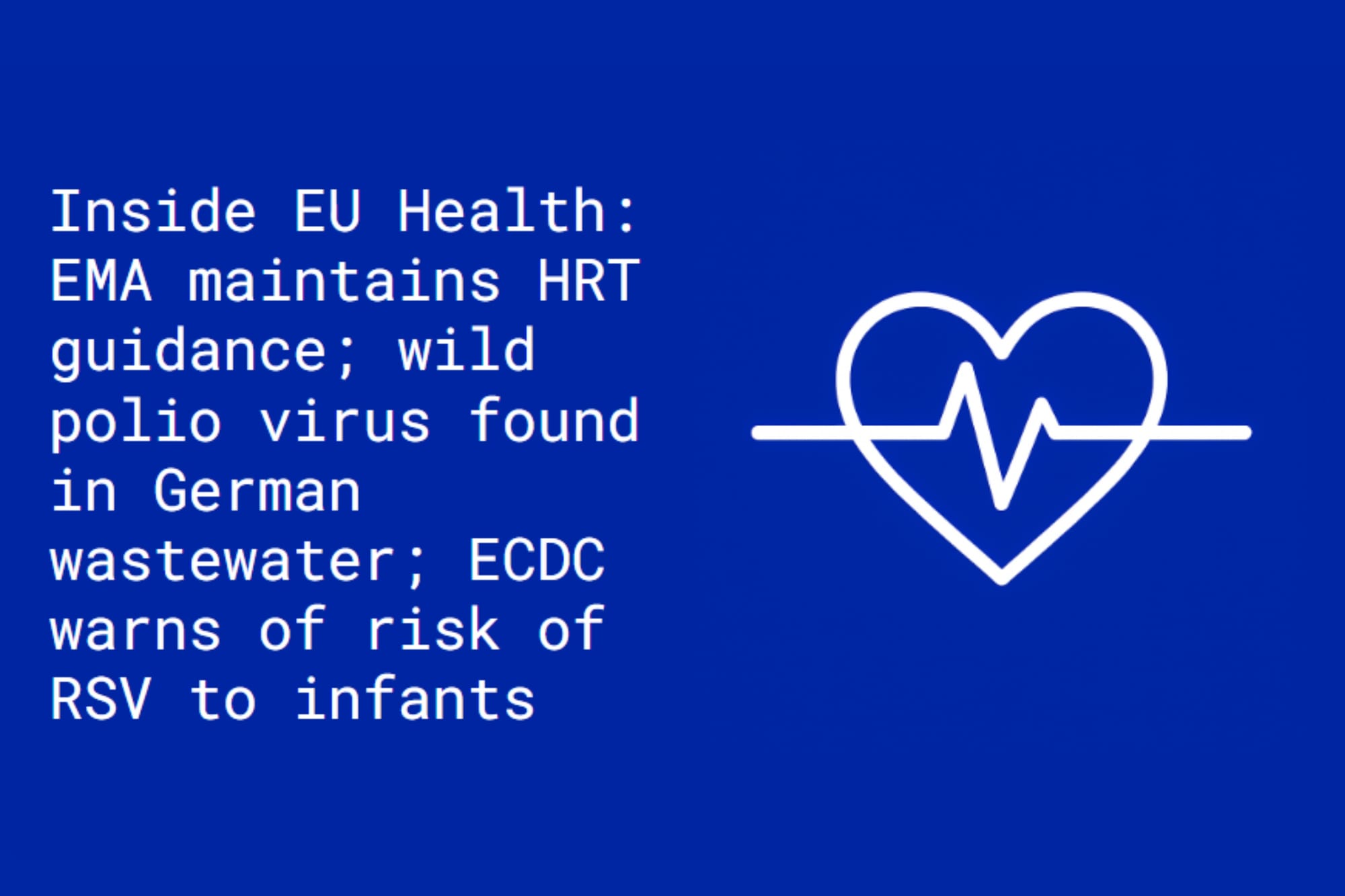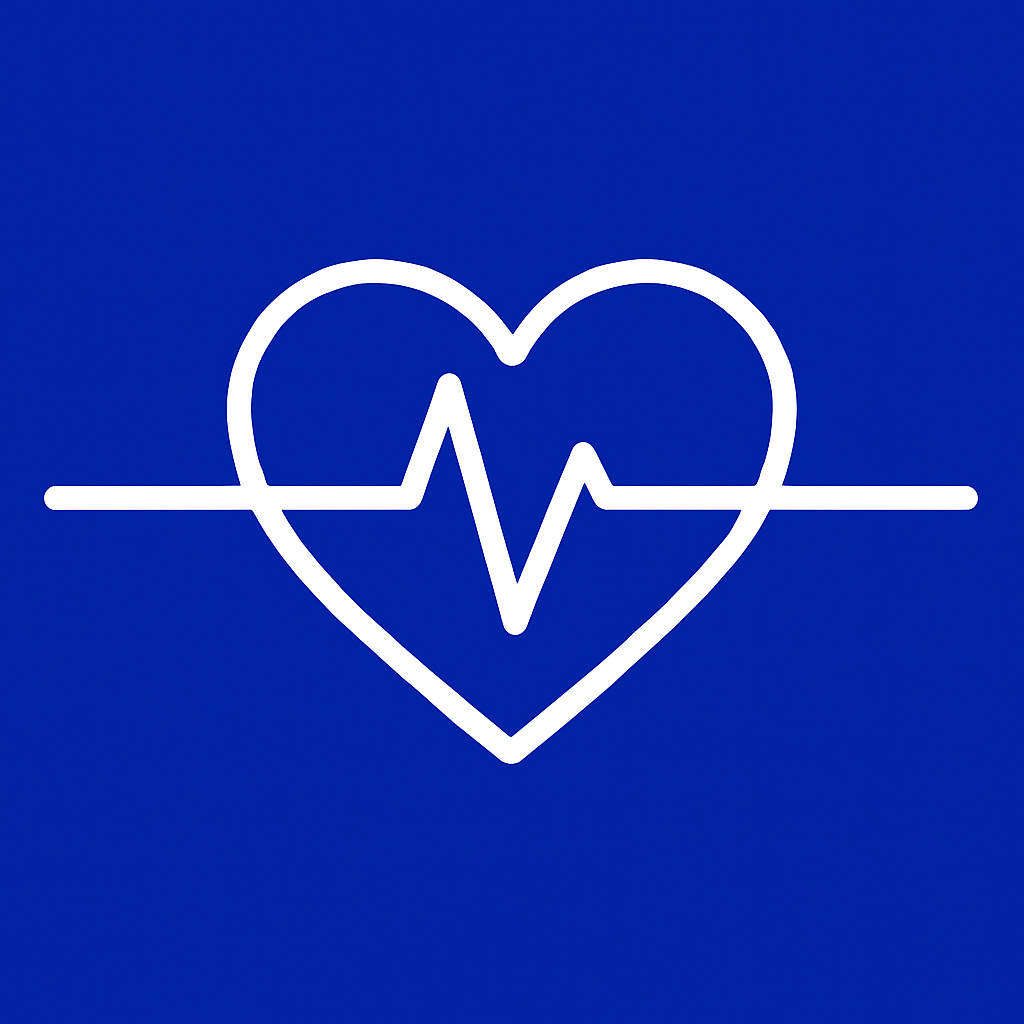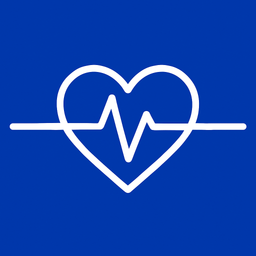Inside EU Health: EMA maintains HRT; wild polio virus found in German wastewater; ECDC warns of risk of RSV to infants
EMA maintains HRT guidance despite US move; wild polio virus found in German wastewater; ECDC warns of risk of RSV to infants

EMA says ‘no new evidence’ to support changes to HRT warnings
The European Medicines Agency (EMA) says it has seen no new evidence that points to a need to amend the current labelling of HRT medicines
On Monday (10 November), the US Department of Health and Human Services (HHS) announced that the US medicines regulator, the FDA, would initiate the removal of ‘black box’ warnings from hormone replacement therapies (HRT). Black box warnings are used to indicate that a medication may present serious risks.
Kennedy and the FDA Commissioner Marty Makary argue that women have been denied the benefits of hormone replacement therapy because of “medical dogma rooted in a distortion of risk.” They cite studies from 1991, 1996 and 1980, which they say show that HRT may reduce the risk of cardiovascular disease, Alzheimer’s and bone fractures, respectively.
EMA says that in the EU, product information for hormone replacement therapy (HRT) medicines remains unchanged, following an update in 2020, and that there is no new evidence to suggest that the labelling of HRT products in Europe needs to be amended.

Wild poliovirus type 1 found in German wastewater
The Robert Koch Institute (RKI), Germany’s federal agency for disease control, has confirmed that wild poliovirus type 1 (WPV1) was detected in a wastewater sample taken in Hamburg. Genetic analysis conducted with the WHO indicates that the virus is closely related to strains currently linked to a cluster in Afghanistan, one of the only two countries where WPV1 remains endemic, neighbouring Pakistan being the other country.
Germany has tested wastewater for polioviruses regularly since 2021. While this marks the country’s first detection of WPV1 in wastewater, several findings of circulating vaccine-derived poliovirus type 2 (cVDPV2) have already been documented in recent months in cities including Munich, Mainz, Frankfurt, and Cologne. Both WPV1 and cVDPV2 can cause poliomyelitis in unvaccinated individuals, though Germany’s consistently high childhood vaccination rates keep the overall population risk very low.
No clinical or suspected cases of poliomyelitis have been reported in Germany, and experts emphasize that a single wastewater detection, while unusual, is not unexpected given global travel and ongoing surveillance efforts.
Health authorities stress that complete vaccination with the inactivated polio vaccine remains the best protection against disease, particularly for travelers to regions where poliovirus continues to circulate.
ECDC warns of rising threat of RSV infections to infants
The European Centre for Disease Prevention and Control (ECDC) is urging heightened vigilance as respiratory syncytial virus (RSV) infections begin to rise across Europe. RSV remains one of the most common and serious respiratory viruses affecting newborns and young infants, often leading to complications such as bronchiolitis and pneumonia.
Each year, an estimated 250,000 children under five are hospitalized in Europe because of RSV, with many cases occurring during the first months of life. Infants and those under six months are at the highest risk.
“RSV can cause a very severe illness in infants, even in those who are healthy,” said Bruno Ciancio, a senior expert at ECDC. “Severe cases of RSV in infants can be prevented by vaccinating pregnant individuals or by immunizing infants after birth.”

